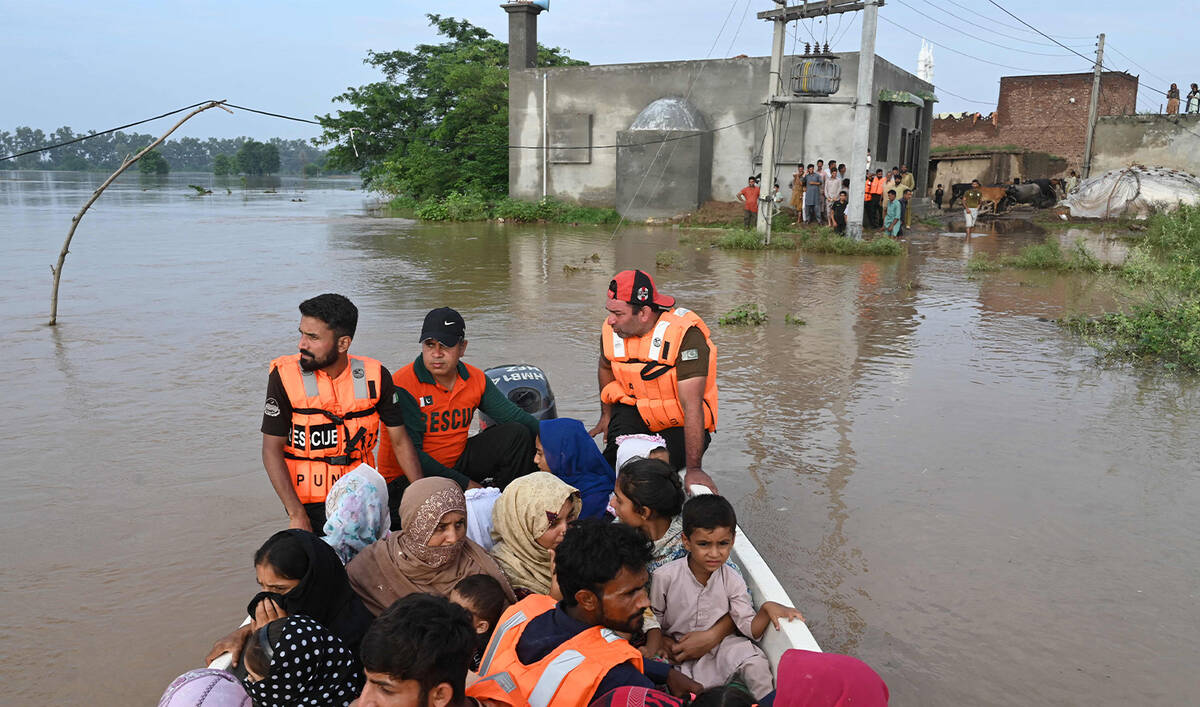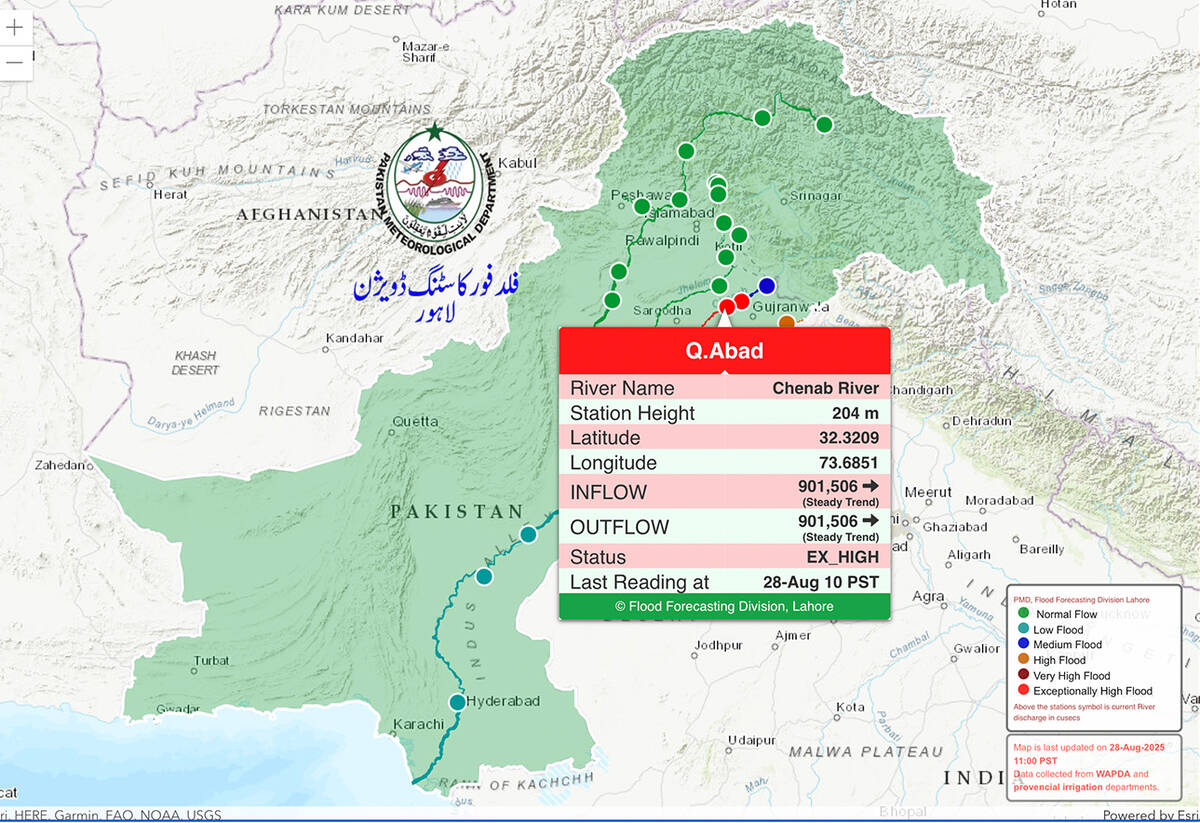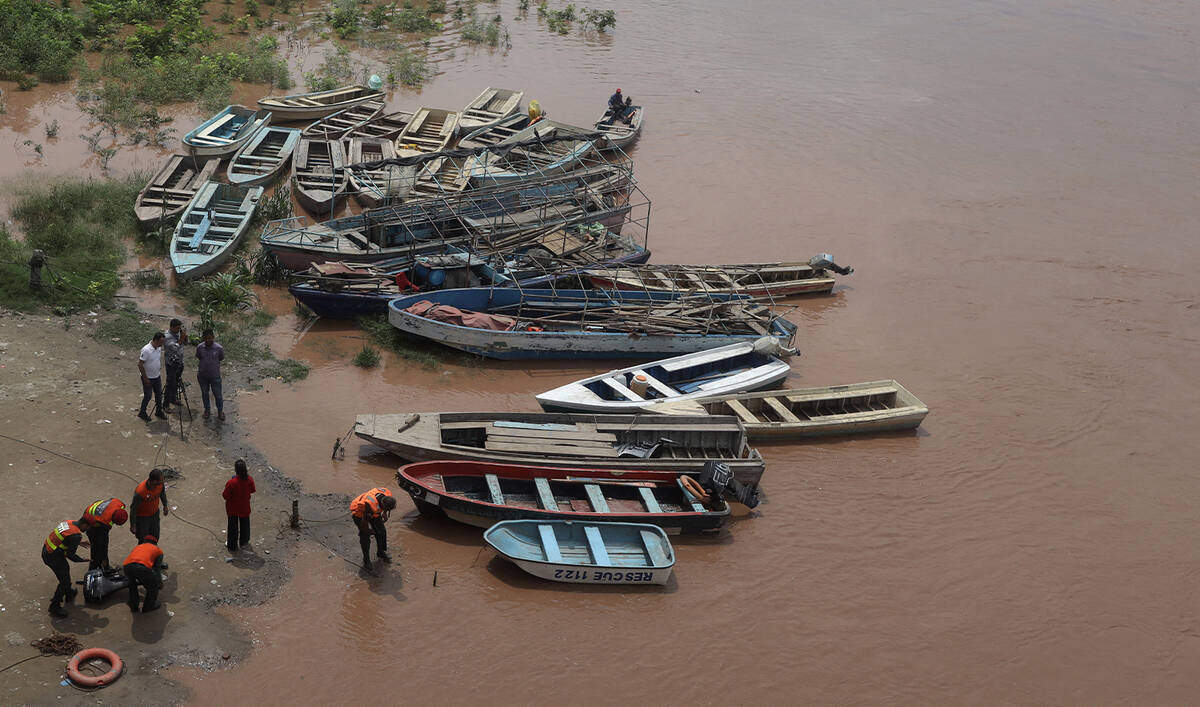ISLAMABAD: A fresh debate has broken out in Pakistan over whether the country should be carved into more provinces, after a widely-quoted report by a new think tank suggested restructuring the federation into as many as 12 to 38 units to improve governance and reduce inequality.
The idea, long raised in Pakistani political circles, gained traction this week when the Economic Policy and Business Development think tank, set up by former caretaker prime minister Anwar-ul-Haq Kakar and ex-federal minister Gohar Ijaz, proposed multiple models for redrawing the map in a report released over the weekend. Pakistani media and politicians have since widely speculated on the plan, which would mark the most sweeping change in Pakistan’s administrative structure since independence.
Currently, Pakistan‚Äôs population of more than 240 million is divided into just four provinces ‚ÄĒ Punjab, Sindh, Khyber Pakhtunkhwa and Balochistan ‚ÄĒ each serving on average over 60 million people. The think tank argued this was one of the highest ratios globally and had contributed to sharp disparities in poverty, education and access to services.
The institute’s report outlined scenarios for 12 provinces with about 20 million people each, or up to 38 provinces with around 6.3 million people per unit. It cited poverty rates of 30 percent in Punjab, 45 percent in Sindh, 48 percent in Khyber Pakhtunkhwa and 70 percent in Balochistan despite large budget allocations. Smaller provinces, the report said, could use resources more efficiently, raise new revenues through tax reforms and reduce deprivation.
Federal Health Minister Mustafa Kamal, a senior cabinet member, told Arab News he would support the plan to carve up new provinces. 
‚ÄúPakistan‚Äôs Field Marshal General Asim Munir spoke about the creation of new provinces while addressing the business community in Karachi,‚ÄĚ Kamal told Arab News, repeating a claim he has previously made in television talk shows when asked to comment on new provinces.
He said his Muttahida Qaumi Movement (MQM) party supported the idea, adding that it ‚Äúcould bring prosperity to Pakistan.‚ÄĚ
‚ÄúIn the context of a Federal Cabinet discussion, I would support this idea if it were to come up for discussion,‚ÄĚ Kamal added.¬†
The military did not respond to requests for comment. 
Information minister Ata Tarar told Arab News he had ‚Äúno idea‚ÄĚ when asked if the government was planing to carve out new provinces.¬†
Federal Minister Aleem Khan and Senator Faisal Vawda ‚ÄĒ seen as close to the military, which has historically played a decisive role in shaping Pakistan‚Äôs politics ‚ÄĒ have publicly backed the proposal.
But resistance remains strong. 
Top aide to Prime Minister Shehbaz Sharif, Rana Sanaullah Khan, dismissed the idea as a ‚Äúnon-serious‚ÄĚ distraction, while senior lawmaker Mushahid Hussain Sayed, in a social media post, called it a ‚Äúwrong idea at a wrong time.‚Ä̬†
He argued that the government should instead strengthen local governments and hold provincial leaders accountable.
Experts say even if there were political will, constitutional hurdles make the plan unlikely. 
Creating new provinces requires a two-thirds majority in both houses of parliament and the consent of provincial assemblies, a threshold seen as nearly impossible with mainstream parties like the ruling Pakistan Muslim League-Nawaz (PML-N) and the Pakistan Peoples Party (PPP) opposed.
‚ÄúEven if the PPP is coerced to support this move, nationalists in Sindh will launch a strong protest, making it very difficult to complete the process,‚ÄĚ said Ahmad Bilal Mehboob, head of the Pakistan Institute of Legislative Development and Transparency.
Muktar Ahmad Ali of the Center for Peace and Development Initiatives agreed smaller provinces could improve efficiency but warned the debate was politically sensitive: 
‚ÄúThe timing is not correct ‚Ķ as the government is already seized with serious challenges like the economy and terrorism. A better approach would be to focus on devolution of power through local governments.‚ÄĚ
Ahmad Nawaz Sukhera, the new think tank’s CEO and a former top bureaucrat, stressed the report had avoided politics, focusing only on economic disparities: 
‚ÄúWe highlighted regional disparities under various indicators, including human development index, and showed how more funds may attend to such deprivation.‚ÄĚ




















